CHEYENNE—Wyoming Supreme Court justices grilled attorneys Wednesday on the legality of the state’s two abortion bans, honing in on what has long been the case’s central question: whether a 2012 amendment to the state constitution prevents lawmakers from ending the practice.
It was a day years in the making after several women, doctors and an abortion aid group filed a lawsuit in March 2023 challenging two newly passed abortion bans. A Teton County District Court sided with the plaintiffs in November, striking down a near-total ban and a second against abortion medications before the state appealed the decision to the high court.
Much like previous court proceedings, Wednesday’s hearing largely focused on Section 38 of the Wyoming Constitution, which protects individuals’ rights to make their own health care decisions. In their questioning, justices wrestled with whether there’s a compelling reason to prohibit abortion in Wyoming, who gets to decide when life begins and whether health care decisions are a fundamental right.
The hearing took place less than a week after Gov. Mark Gordon announced that he selected his attorney general, Bridget Hill, to replace Chief Justice Kate Fox when she retires from the Wyoming Supreme Court on May 27.
While the decision isn’t expected to be published before Fox’s retirement, she will participate in its consideration and decision since she heard the case, per the court’s internal operating procedures. Meanwhile, Hill will remain Wyoming’s attorney general until she takes the bench on May 28, and she will not participate in the court’s decision on this particular case.
In the meantime, abortion in Wyoming remains technically legal, though a pair of new laws has effectively stopped the state’s lone clinic — Wellspring Health Access — from providing abortion services.
One of the new laws requires patients seeking abortion medications to first undergo a transvaginal ultrasound and a 48-hour waiting period. A second placed more onerous regulations on Wyoming clinics that perform abortions. A separate case challenging those abortion restrictions was heard in a Natrona County District Court earlier this month. Choosing not to rule from the bench, Judge Thomas Campbell said he would issue a written decision at a later date.
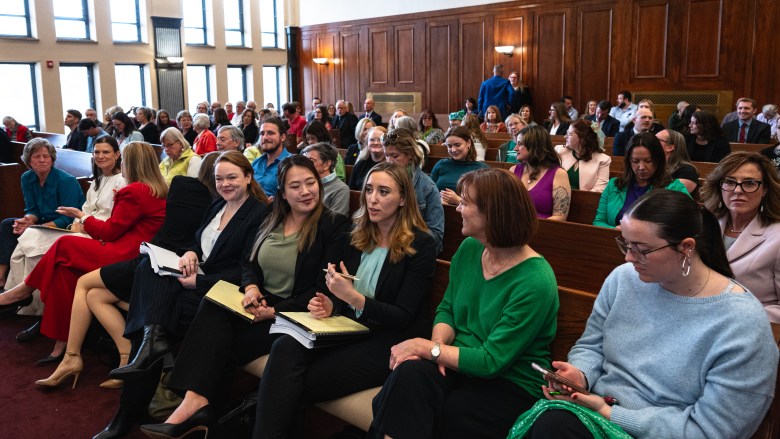
Inside the courtroom
The long-anticipated hearing lasted about an hour and kicked off with arguments from Wyoming Special Assistant Attorney General Jay Jerde, who is defending the bans for the state.
“When you have an individual right that’s fundamental, when the state regulates, it has to have a compelling reason for doing so. And the restrictions imposed have to restrict the right to the minimum amount possible while still accomplishing the compelling purpose,” Jerde said.
But the right of individuals to make their own health care decisions, as specified in the state’s constitution, is not a fundamental right, Jerde said, because of how it is qualified by another section of the constitution that empowers the Legislature.
“The Legislature may determine reasonable and necessary restrictions on the rights granted under this section to protect the health and general welfare of the people or to accomplish the other purposes set forth in the Wyoming Constitution,” Section 38, Subsection C reads.
“What about Subsection D?” Justice John Fenn asked.
“The state of Wyoming shall act to preserve these rights from undue governmental infringement,” Subsection D states.
“Does that also fit into this reasonable and necessary test?” Fenn asked.
“No, Your Honor. It does not,” Jerde said.
Later, Justice Kari Gray pressed Jerde about when life begins.
“Do the courts get to determine when there’s viability? Does the Legislature? It’s an unsettled area of the law. There’s no consensus. Not secular consensus, not religious consensus on when life begins. So who gets to decide when life begins?” Gray asked.
That’s up to the Legislature, Jerde said, “because they’re the most answerable to the people.”
Representing the plaintiffs, attorney Peter Modlin pushed back on the argument that health care decisions are not a fundamental right.
“The question presented in this case is whether the state Legislature may deprive pregnant women of their fundamental constitutional rights for the duration of their pregnancy,” Modlin said. “The state’s position is that the Legislature has plenary authority to dictate to pregnant women what health care choices are available to them. We urge the court to reject this and find the laws unconstitutional.”
“What about the slippery slope?” Fenn asked Modlin later in the hearing.
“‘Health care decisions’ is a broad term, and if we determine that’s a fundamental right, it seems to me that there’s all kinds of — health care is a heavily regulated industry. It opens Pandora’s box on what is health care and what regulation can be made. Medical marijuana — I mean, you just go check down the list of so many different things that are reasonably regulated that this might turn that upside down,” Fenn said.
“We would respectfully disagree,” Modlin said.
“Your Honor, we looked, and the state looked as well, for another example of a law that prohibited a specific medical procedure, you couldn’t find one. And neither could the state. These laws are truly unique,” he said.
Marci Bramlet, another attorney for the plaintiffs, reiterated this point in her arguments, citing the fact that “there is no correlating limitation on a man’s right to make health care decisions, especially reproductive health care decisions.”
“But a man is not similarly situated,” Gray responded. “Equal protection requires similarly situated individuals.”
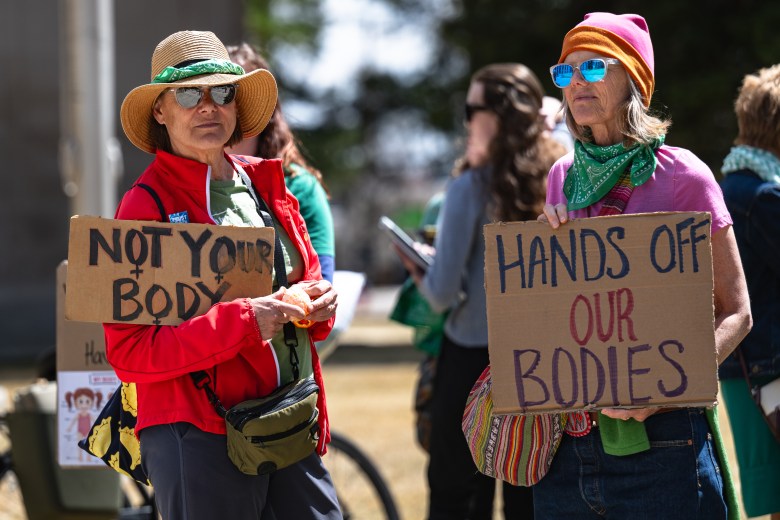
Outside the courtroom
Abortion rights advocates gathered in front of the Wyoming Supreme Court for around an hour before the proceedings. A group of perhaps three dozen people, mostly women and some men, wore green and stood quietly holding signs. They did not engage in any chanting or shouting — an organizer told WyoFile they did not want to give the impression of trying to intimidate or sway either people entering the courtroom or the justices inside.
Among them was Dr. Giovannina Anthony, a Jackson provider who is one of the plaintiffs in both ongoing legal disputes over abortion. Anthony told WyoFile that the new laws have forced her to provide transvaginal ultrasounds to three women in recent months.
Clients have come to Anthony through Just The Pill, a company that provides abortion medications by mail. State law requires them to receive an ultrasound 48 hours before receiving the abortion medication. There’s no medical reason for the procedure, Anthony told WyoFile, but she has to follow the law.
“I apologize to the patient for a probe in the vagina that is not necessary and doesn’t improve patient safety,” she said. “It makes me feel like an agent of the state, not a doctor.”
Abortion providers, including Anthony and Wellspring, the Casper clinic, have been waiting on a Natrona County judge’s action on a proposed injunction against the law mandating the ultrasound, which the Legislature passed earlier this year. That case is likely to proceed regardless of the Wyoming Supreme Court’s decision on the abortion bans, because that proceeding focuses on the regulation of abortion, rather than an outright ban.
The ultrasound requirement, Anthony said, is invasive, adds extra costs and an extra logistical hurdle for women seeking an abortion. But it’s not going to dissuade them, she said. In 30 years of practice, Anthony has never seen an ultrasound change a woman’s mind about an abortion.
“Women who want to end their pregnancy are going to end their pregnancy,” the doctor said, “no matter what.”
That’s a worry that drew Wendy Volk, a longtime Cheyenne realtor and outspoken women’s rights activist, to join the group standing in front of the Wyoming Supreme Court.
Volk cited the well-publicized deaths of pregnant women in Texas and Georgia who had sought abortions in those strictly limited states. “Women are dying because of abortion bans,” she said. She fears a ban in Wyoming would put women here in similarly unsafe situations.
But Volk was optimistic the Wyoming Supreme Court would uphold the Teton County judge’s choice. She believes the state’s constitution protects women’s rights to the health care of their choosing. “That is the Wyoming way,” she said.
Cheyenne-based psychologist Sarah Courtright shared Volk’s optimism for the outcome. She didn’t see how the state’s attorneys could reconcile the protections for personal health care choices with a ban on abortion, she said. She also pointed to lawmakers’ recent drive to make sure adult Wyomingites can’t be forced to take a vaccine — a response by conservative lawmakers to the government’s public health response to the COVID-19 pandemic.
“What are they even going to be able to say?” she asked of the ban’s proponents.
Those opposing the ban lined one side of the sidewalk that led up to the courthouse entrance. But on the other side of the sidewalk — where one could envision a line of counterprotestors — there was just green grass.
Inside the courtroom, however, advocates for ending abortion filled a number of the benches. Only one sitting member of the Legislature, conservative Cheyenne Republican Rep. Gary Brown, attended the hearing. But the religious-driven political faction that has pushed the abortion bans held a “Pray for Life” livestream last week, in which they prayed for a favorable outcome to Wednesday’s hearing.
“We know that life is of infinite value,” Nathan Winters began the livestream. Winters, a former lawmaker and president of the Wyoming Family Alliance, a conservative Christian organization, said people were gathering virtually to “pray for wisdom and pray for Wyoming’s future.”
Winters was followed by former Wyoming Supreme Court Justice Keith Kautz, who left the bench in May.
“To our great shame, Father, we have decided that an unborn child made in your image isn’t a child at all, but merely an unidentified tissue of potential life that may be destroyed and killed even though we know it is alive,” he said during his prayer remarks. “We are becoming enslaved to unthinkable corruption and immorality.”
Speaker of the House and prominent anti-abortion crusader Chip Neiman, R-Hulett, also spoke, as did Sen. Cheri Steinmetz, R-Torrington.
“I just want us to really realize how important what we’re really doing here is,” Neiman said. “We are standing in the gap for people who can’t have a voice.”
The court will now take the arguments made during the hearing under advisement before publishing a written decision that’s expected sometime later this year.


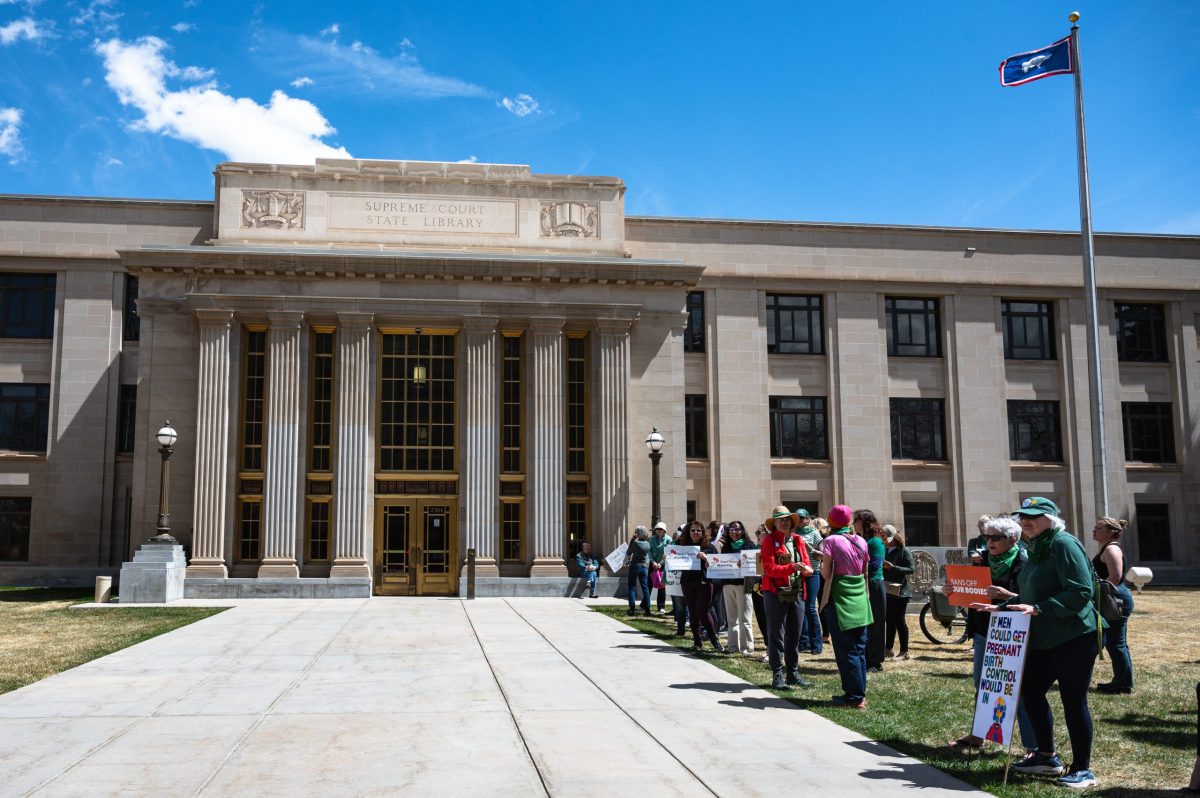
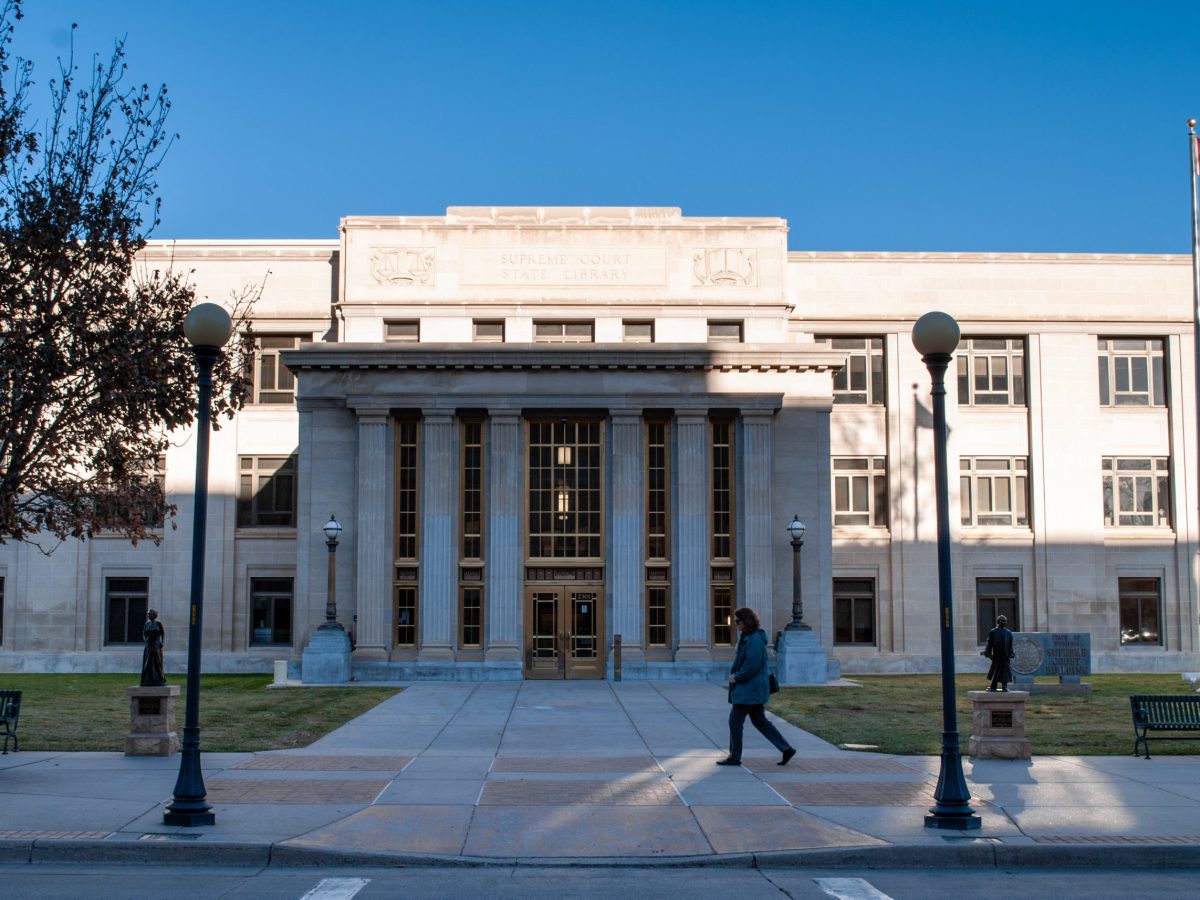
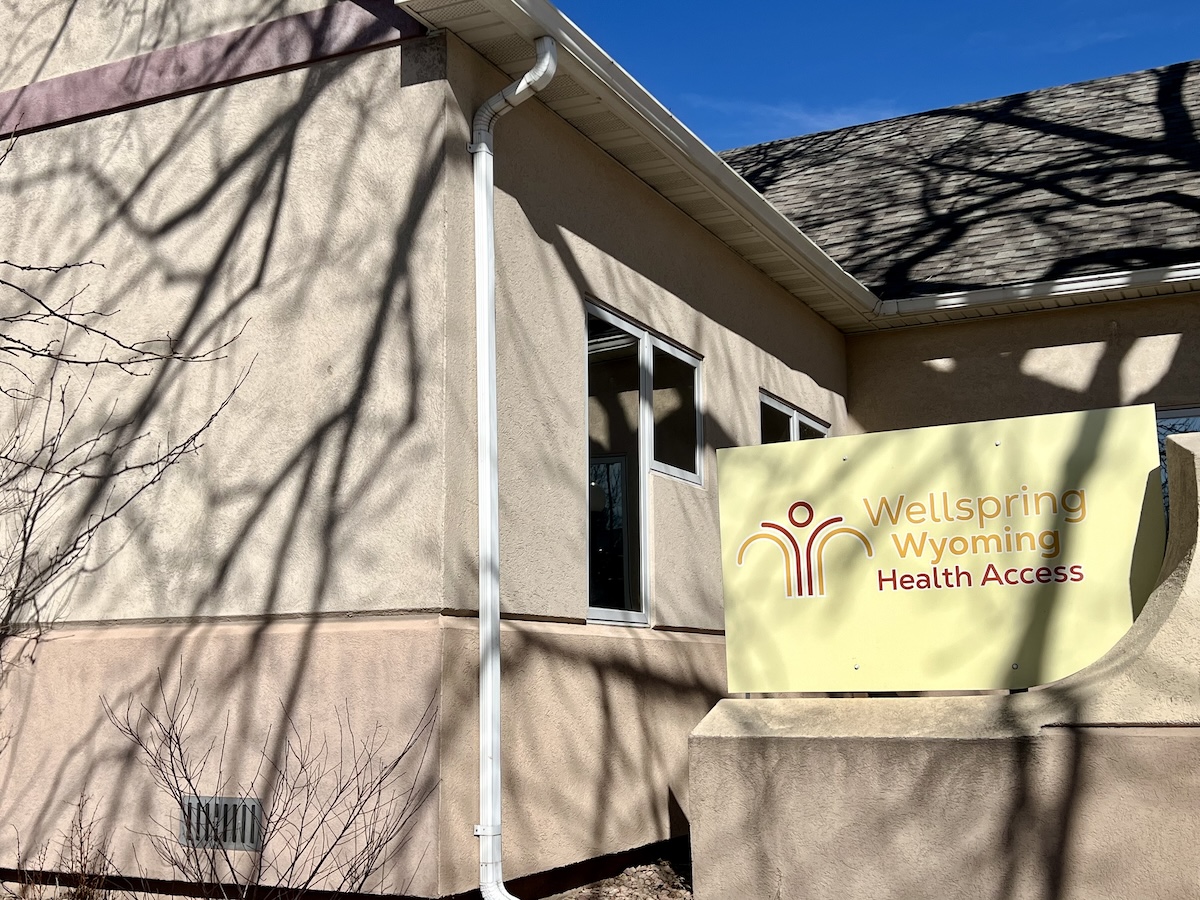
Anyone with integrity and honesty knows abortion is healthcare. It should be between a doctor and the Women. The so-called christian white males want to rule the ladies. Reject these hypocrites.
I listened to the proceedings. Given the magnitude of the core issues, I was surprised the hearing only lasted an hour.
One thing, though . If you read the reporting over at the other daily Wyoming online news channel , you would think their reporters and the WyoFile reporters attended two different hearings …
As I read this article, I had to notice that men are dictating to women whether to carry their pregnancy. Men cannot get pregnant. They have no idea what a woman is feeling. I just feel that your skin and everything inside of you is yours and you decide not the legislature or the government in anyway . Wendy Volk, a woman spoke for the women. Their voice should be respected, and men should get their noses out of women’s business like this. guaranteed if a man could get pregnant abortion would be legal. When a baby takes its first breath that’s when its rights begin in my opinion. It’s a tough subject. It’s a tough decision for the women just leave them alone.for one thing I think it cost about $15,000 to have a baby. if you care about getting babies born making laws that scare the hell out of doctors is not the way to do it Wyoming is a maternity desert almost due to radical legislation.
Oh. One can see the wisdom of aborting out our future generations of young. The world will be much better place when man just ages out and dies out to let the plants and animals take over. Great thinking.
Don’t worry Larry. There are literally billions more people on the earth than when I was born. Women have been having abortions as long as the Human has existed, yet there are still an unhealthy number of us on the planet.